Volunteer Responder Scheme
- What it is
The Volunteer Responder Scheme (VRS) is a new initiative where Specialist and Advanced Paramedics in Critical Care volunteer their time while off duty to bring their specialist knowledge and skills to help patients in need of the enhanced and critical care that our team are able to provide.
Three volunteers from within our team have commenced a twelve-month pilot trial to ascertain the feasibility of introducing a substantiated model of volunteer responding. The team will attend emergency calls outside of their normal working hours on a completely voluntary basis. They will work closely with our core Devon Air Ambulance clinicians, South Western Ambulance Service NHS Foundation Trust (SWASFT) colleagues, and volunteer doctors from the British Association for Immediate Care. As we develop the service, we hope to secure funding to be able to equip more of our team with the specialist equipment they need to respond on a voluntary basis.
- What can the VRS team deliver?
The team of VRS responders are either qualified Specialist or Advanced Paramedics in Critical Care and will be able to deliver their full ‘Scope of Practice’, just as they do when on duty and respond on one of our helicopters or Critical Care Cars. This includes, but is not limited to, advanced airway management, sedation, advanced trauma care procedures and support with complex clinical decision making. The team will support our existing enhanced and critical care service in delivering the best available care to our patients in their time of need.
- How will the VRS team respond?
VRS responders will be dispatched by the Helicopter Emergency Medical Service (HEMS) Dispatchers based in the SWASFT control room in exactly the same way as they currently dispatch our helicopters and Critical Care Cars. Volunteers will respond in their own vehicles and at their own expense. Vehicles have been appropriately insured and inspected to enable volunteers to reach the scene safely and rapidly to treat the patient.
- How much does it cost?
Each responder needs to be equipped with much of the same lifesaving equipment carried on our Critical Care Cars and helicopters. This includes items used to monitor a patient’s vital signs as well as the equipment needed to treat them. In addition, volunteers need to be able to reach patients quickly and safely, and as qualified emergency response drivers, they have extended their personal motor vehicle insurance provision to allow them to fix blue lights and a siren temporarily while they respond to an incident. The provision of the blue lights, the siren, and the medical equipment volunteers need to be able to respond to and help patients, comes to approximately £5,500 per volunteer.
- How do I learn more about the VRS trial?
Although our volunteers are all qualified Specialist or Advanced paramedics in Critical Care, the VRS itself is a 12-month pilot trial.
As such, a detailed service evaluation will run concurrently throughout the 12 months to ensure that all the data is captured, such as how many patients we helped and how quickly we could bring time-critical care to them. Importantly, we will also seek the experience of the patients we help and the emergency service colleagues we work alongside.
Headline facts and mission figures will be shared on this page and on social media. Of course, our commitment to safeguard and protect our patients will mean we won’t be able to share any identifiable data, but the headlines and an overview of what we achieve throughout the 12-months we be available for you to review.
For any specific questions regarding the scheme, please contact the VRS Project Lead, Lee Hilton, on [email protected]






